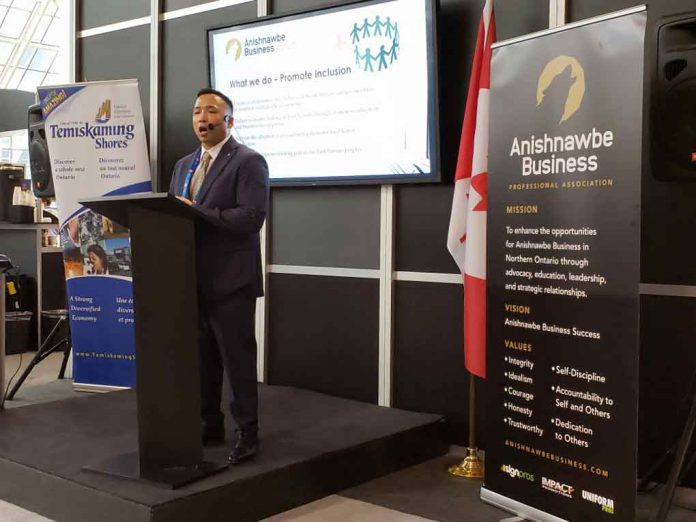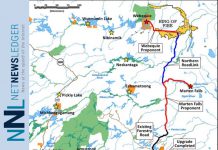Robinson-Superior Treaty and Fort William First Nation Territory, Thunder Bay, Ontario – INDIGENOUS – This week the Liberal government announced the next steps for a long-awaited National Indigenous Loan Guarantee Program in the next year’s federal budget. However Indigenous leaders are still waiting for details on how the program will work and whether the program, would help communities invest in the natural resource sector, will facilitate equity ownership in energy, mining, forestry and other infrastructure projects.
Jason Rasevych, President of the Anishnawbe Business Professionals Association, regarding the Government of Canada’s Economic Statement and commitment to National Loan Guarantee Program for Indigenous peoples states:
“Indigenous leaders have been calling on this type of program for decades. We have seen some examples in Alberta, Saskatchewan and Ontario, but there are some limitations on what type of project can be supported including the amount and timeline.
“The lessons learned from the successes and challenges of the current state and forecasting the market demand should be part the new program design and seek compliance with Indigenous-led values and the principles of Truth and Reconciliation Commission of Canada’s Calls to Action.
“The announcement of a national Indigenous loan guarantee is a positive commitment that protects lenders from potential defaults and derisks the weighted average cost of capital however much more needs to be considered on how it prioritizes applications by geography, by industry and deals with jurisdictional dissonance across the provinces permitting regimes.
“We need to make sure that the human rights risks inflated by financial programs that create a larger gap between the classes of have and have not Nations are minimized and not motivated by a government – political agendas. We need the loan guarantee program to enhance and support Indigenous communities looking to participate in various sectors at different financial thresholds of resource development and ownership of enabling infrastructure like corridors and facility ownership.
“These projects should be assessed to consider respect for the rights-holders throughout the financing and project lifecycle, and that the proponent has achieved the free, prior, informed consent of Indigenous peoples impacted as a condition for approval. If the mandate and decision to provide the loan guarantees is supporting government or partisan plans it will create more friction for Crown-Indigenous relations especially on how those loan guarantee decisions are being made.
“Indigenous communities will also need grant funding to develop the business case and economic model for the loan guarantee applications and there should be a mechanism to consider backing Indigenous-owned or operated lenders and financial institutions for a multiplier effect.”
“In the past there has been budget allocations to realize Canada’s role as a key global supplier of critical minerals for manufacturing electric vehicle batteries, solar panels, and other low-carbon technologies, suggests dependence on intensive mineral extraction. Given Northern Ontario’s forest and mineral abundance, the region has an integral role to play in achieving these aspirations. Resource developers and governments will need to demonstrate understanding of the necessary and pivotal role that First Nations play within this paradigm given their unique rights and land title.
“While the announcement could be promising as a path to reconciliation and economic growth through its support of developing strong partnerships with First Nations, success will only be realized through effective roll out and accountability. The federal government will need to demonstrate a well-executed and collaborative approach with First Nations. ABPA stands ready as an advocate for the First Nations business community and will be watching and eager to play a role in ensuring the above outlined programs meet the demands of the North”.
About the ABPA:
The Anishnawbe Business Professional Association (www.anishnawbebusiness.com) is a non-profit, member-based organization based in Thunder Bay, Ontario. ABPA serves the First Nation business community within the Treaty #3, Treaty#5, Treaty #9 and Robinson Huron and Superior Treaty Areas. The ABPA develops and expresses positions on business issues and other public issues relevant to First Nation business, on behalf of its members. They provide a forum for the First Nation business community to develop policies and programming which contribute to the socio-economic well-being and quality of life of First Nations peoples in Northern Ontario. They also serve non-First Nation businesses by providing information, guidance, and access to a wide-ranging network through events and sponsorship.
The current ABPA Board of Directors include:
- Jason Rasevych, President, Ginoogaming First Nation
- Rachael Paquette, Vice-President, Mishkeegogamang First Nation
- Ron Marano, Vice-President, North Caribou Lake First Nation
- Jason Thompson, Secretary/Treasurer, Red Rock Indian Band
- Brian Davey, Director, Moose Cree First Nation
- Steven McCoy, Director, Garden River First Nation
- Tony Marinaro, Director, Naicatchewenin First Nation





